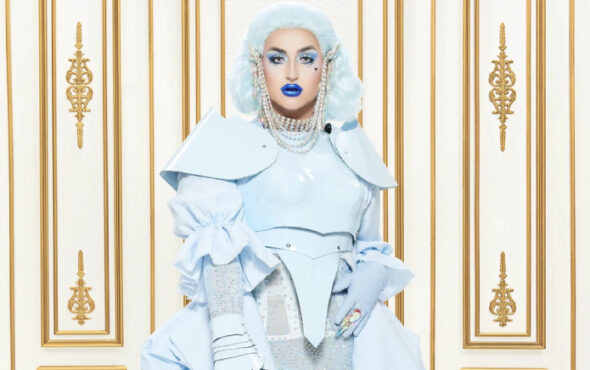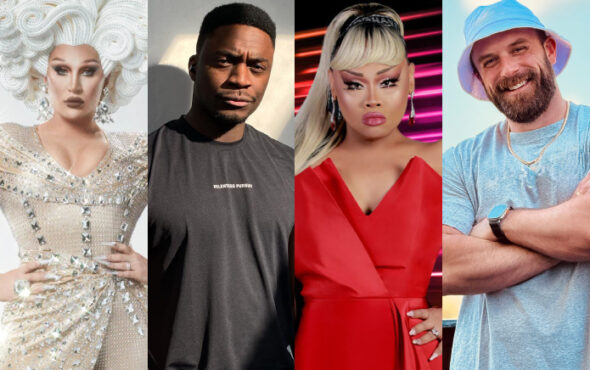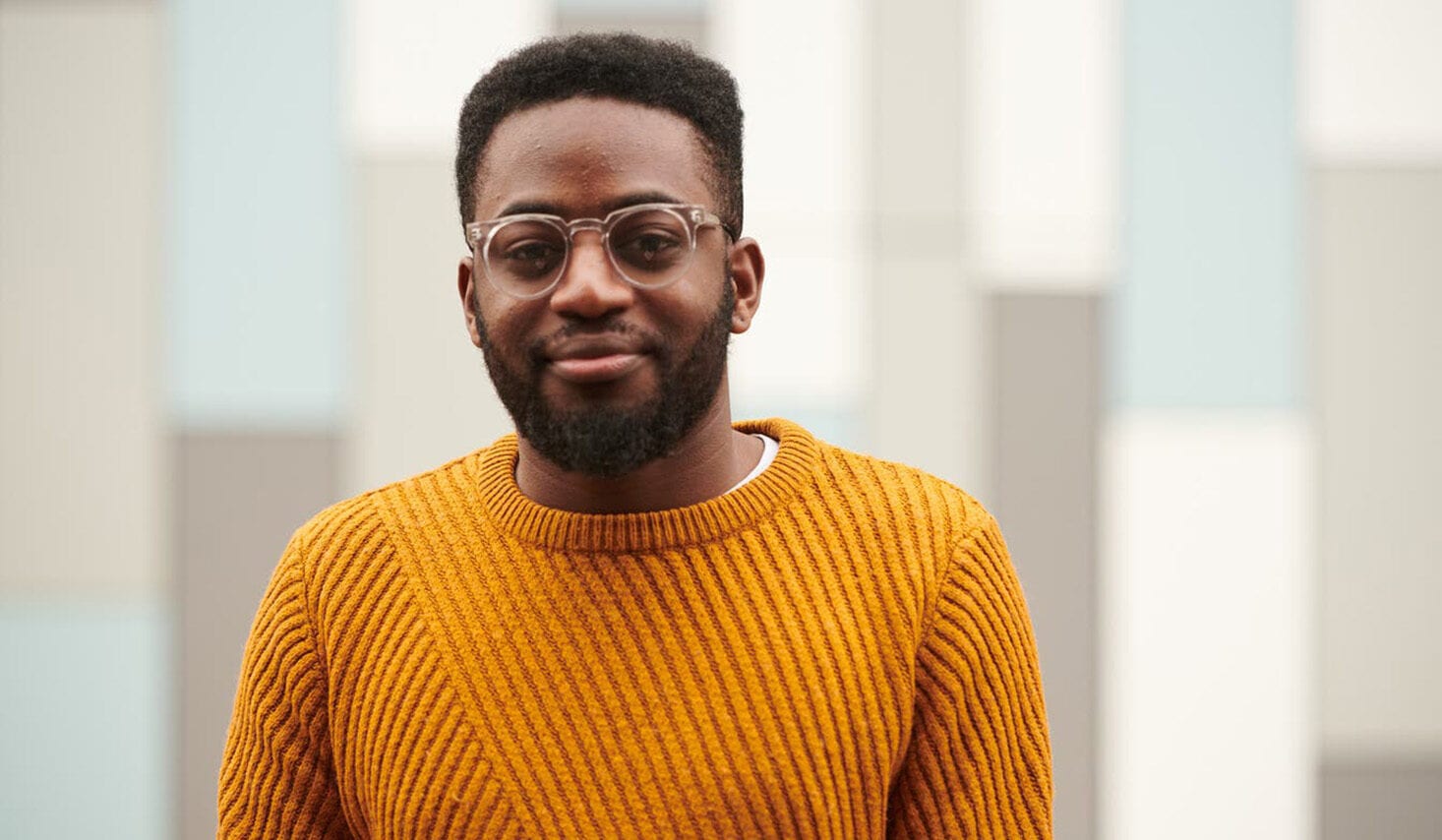
On 17 March 2021, it was announced that Rhammel Afflick had quit his role as Director of Communications for Pride in London, citing concerns regarding institutional racism throughout the organisation. Rhammel was the most senior Black person volunteering for the non-profit organisation and had been part of Pride in London for seven years.
On the 18 March, just a day later, the entire community advisory board at Pride in London resigned, citing a ‘hostile environment’ with allegations of the bullying and gaslighting of volunteers of colour. In early 2021, Rhammel was the recipient of the British Empire Medal, in recognition of his commitment to campaigning and volunteering in the LGBTQ+ community.
UPDATE: Pride in London directors resign due to allegations of ‘racism and bullying’
Following his resignation, I caught up with Rhammel to discuss his decision to leave the organisation, his thoughts on Pride in London’s response, and his advice for Black people who experience racism in the workplace.
You made your announcement only this week – how are you feeling about it today?
The main feeling is one of relief. I’ve been able to own my narrative – but mostly I feel relief that I’ve been able to pull Pride in London up, and so directly. Writing my statement was very stressful – I felt immense pressure. Lots of Black people have reached-out to say they’d had similar experiences, to offer support and say that they too had felt paralysed to speak out in the workplace. A lot of Black people would say ‘why bother with Pride in London in the first place?’ We have to be vocal in these spaces because they are supposed to represent us too! Black people shouldn’t have to withdraw from these mainstream spaces for fear of racism and these other issues, but I completely respect those who have made that choice.
In your statement, you say it wasn’t just you that was discriminated against. That sexism, ableism, and other forms of unacceptable discrimination exist as part of the Pride in London culture.
Absolutely, and I felt I had to shed a light on that, but I can’t speak to other people’s experiences but I can acknowledge it in a way that doesn’t trivialise those experiences – these things are all connected. When the suggestion to include anti-racism messaging as part of Pride in London’s partnerships, the parade, the branding – as part of our values – the response was ‘sexuality and gender is what the brand is, and of the nine protected characteristics we only obligated to protect two of them.’ I don’t know how an organisation doesn’t see that as problematic. The characteristics are not there so we can pick a choose from them. During my time at Pride, alongside many other people of colour, I have challenged the organisation’s endemic lack of diversity and inclusion. Pride’s lack of commitment to diversity has shown itself in countless ways.
So this wasn’t ignorance, it sounds like those involved were able to articulate their bigotry?
Absolutely, we’re not just talking about people who are ignorant. I repeatedly spelt it out to them – repeatedly. I was very direct and clear. I have the paper trail to back this up. I could write a book about the conversations I’ve had on what Pride in London needed to do to really ensure Black and Brown communities felt Pride in London saw them. I had to clarify and explain this wasn’t about ‘solidarity’ with Black and Brown communities, but our community which includes Black and Brown people! For some reason, there is programming in LGBTQ+ spaces that ‘Oh those are Black issues.’ No, these are LGBTQ+ issues that pertain to people from Black and Brown communities! As queer Black people, we don’t get to forget that we’re Black when it comes to LGBTQ+ issues, and I just don’t think that was understood.
What do you think went so wrong within the culture at Pride in London?
There was no willingness to protect Black and Brown people. The unwillingness to put in place a system that supports outspoken marginalised voices – showing contempt for Black communities and not feeling that there is an obligation to respond to Black issues. There was a suggestion that I had not brought up these issues internally. I sent that person the screenshots. There has to be space to learn but you can’t claim ignorance when it’s repeatedly been spelt out to you. I’m saddened to say that I’ve lost all confidence in the leadership’s ability to successfully address the adversities faced by our multi-faceted communities.
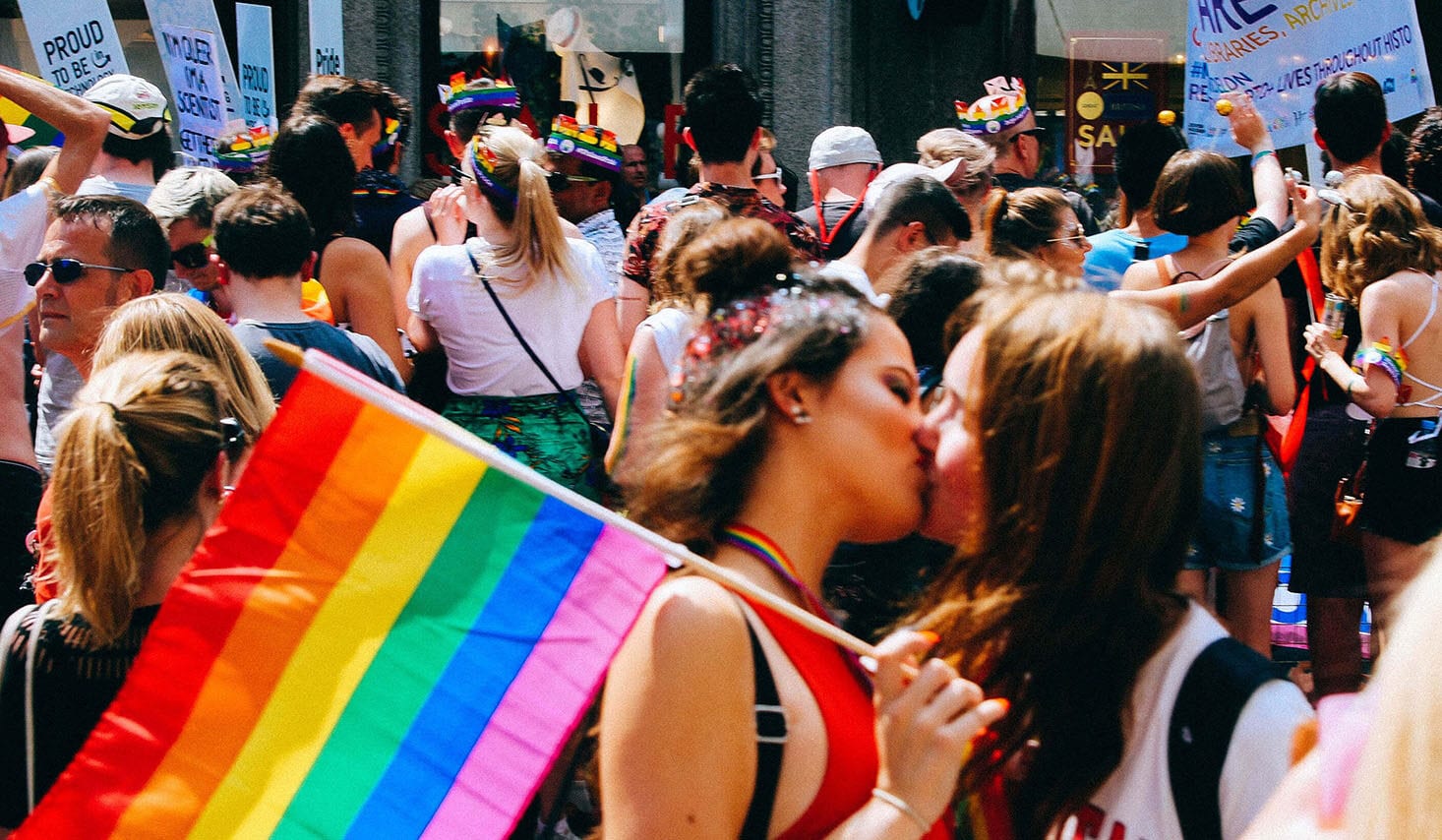
What were your thoughts on the statement and apology Pride in London issued?
They admitted fault – they had to – I had sent receipts dating back to 2014. As I’ve already said, new leadership is needed to ensure these events can’t continue. It was becoming an open secret that so many Black people had been hurt. It’s time the story changed. Pride has issued many apologies and what have they meant? The communities who attend Pride in London deserve better than that. A lot of liberation movements are struggling with this idea of how identities intersect. We shouldn’t have to protest about these things. Internally, Pride in London had the mentality that ‘racism is over there’ – no, no, it was right there!
The amount of evidence you have to corroborate your experience and the nature of the statement issued by Pride in London supports your position. Why did it take you so long to speak out?
Perseverance and resilience. I was on a mission. I felt there was an opportunity to change things and I believed in what Pride in London was capable of. That’s not to say nothing was achieved. We, as an organisation, did fantastic things and I was central to many of those accomplishments. In 2014, I was the only Black person at Pride in London, so I was under no illusions but I saw an opportunity to change things. I remember my first full team meeting. I said to the board, ‘What is the plan for diversity on the board?’ The reply I got was, ‘The board doesn’t seek to be representative of the community’. Many people would have walked out at that point, but I thought, ‘I’m going to persevere’. I wanted to put in the work, and some of it paid off. In the following years, we built the most diverse comms team Pride in London ever had. It wasn’t until 2020 that Pride in London did anything for Black History Month. It took that long. I was very close to resigning, many times.
When every member of Pride in London’s community advisory board resigned the following day, what were your thoughts?
The wave of resignations just shows that Pride in London’s response to this has been woeful, as it has been every time this issue has come up. The community advisory board, made up of ten individuals, was established in 2012 to advise the directors on questions of inclusivity and help the body meet its commitment to openness and transparency. That tells you everything. Unfortunately, this is a moment in time where people have seen a flashpoint and an opportunity to speak up about the things they’ve experienced themselves – particularly those things that weren’t explicit enough to act on. But in this moment they felt empowered to speak out.
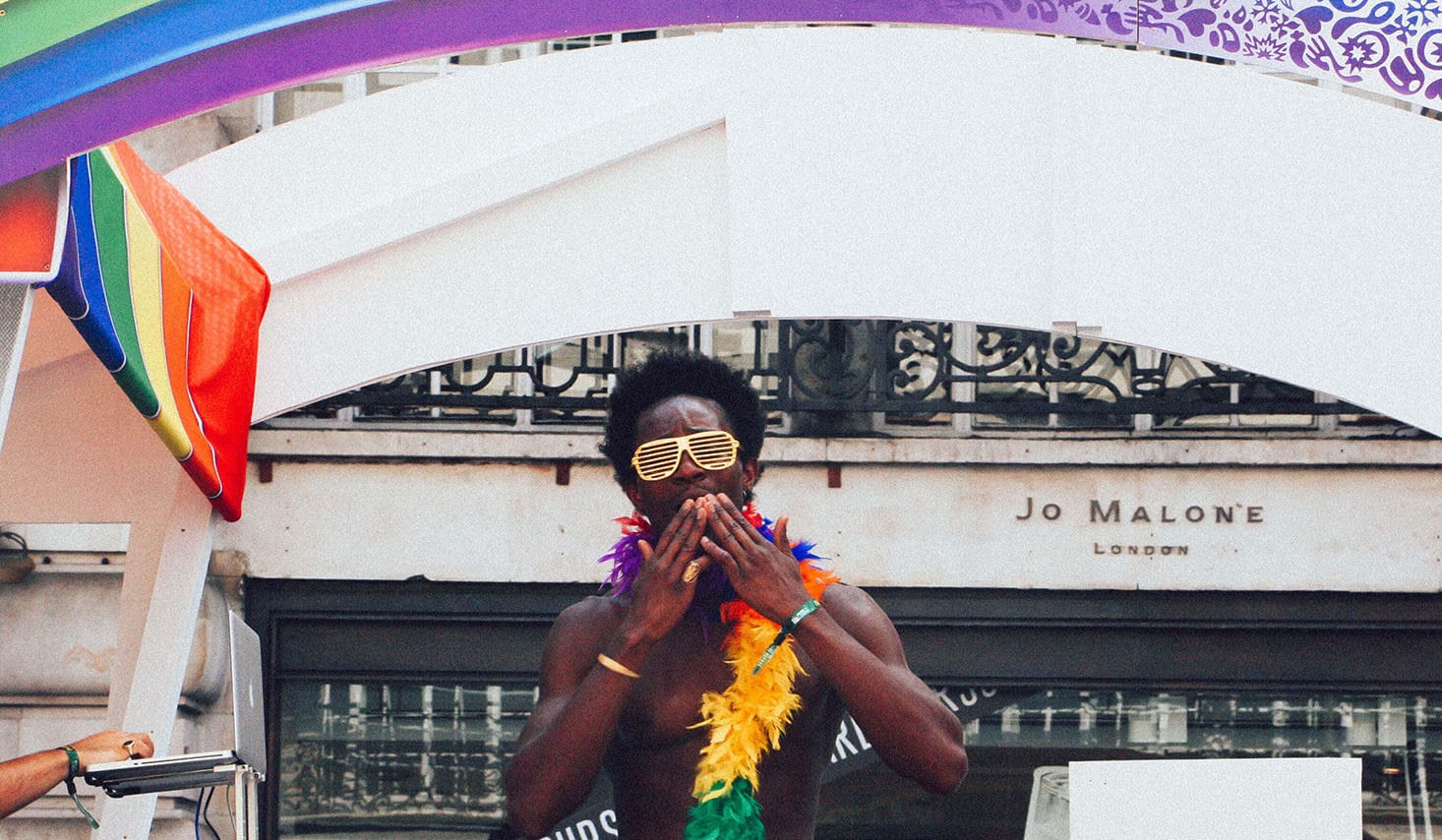
What are your thoughts on UK Black Pride? What stance did Pride in London have on the organisation and event?
There’s a lot of positive things I can say about UK Black Pride, the volunteers and what is a phenomenal event – it goes from strength to strength. The working relationship was strained because of the bad taste Pride in London’s leadership had left in people’s mouths when we did work together. A relationship that should have been nurtured and cared for. Lots of people talk about UK Black Pride in terms of racism and the trauma we experience in other spaces, but to me, it’s more important we recognise UK Black Pride as being about Black joy, celebrating and enjoying exactly who we are in the way we know how.
What would you say to Black people experiencing racism in the workplace?
You must prioritise yourself, centre yourself and your wellbeing – I felt confident in speaking out because I had the paper trail. That took time, perseverance and patience. If you feel something is wrong send an email – it’ll be on record. It makes it a lot harder for people or an organisation to gaslight when you have pieces of evidence. Many Black people experience this in their workplaces. I’ve had people come to me with their stories and I’m glad I’ve spoken out. I hope it makes a difference for those people. It’s been an added benefit that Black people have seen their own experiences represented.
How do you feel about Pride In London today?
The whole confederation of Pride in London needs to change. Pride in London doesn’t have much accountability, and maybe that’s about to happen now. There needs to be real dialogue about what we want from Pride. People from marginalised groups need to be a part of that conversation in particular as they are the ones with most at stake! I remember someone being more upset by the idea that I thought people were racist than they were about the actual racism itself. I think a lot of people will recognise that. This conversation should be part of the momentum that came from George Floyd’s death. What happened last year should have been a wake-up call for many organisations to use that energy to deliver better experiences for Black people. Pride in London fell at that hurdle, quite dramatically. As custodians of the Pride movement, we must be willing to disrupt the cycle of discrimination faced by LGBTQ+ communities.
GAY TIMES reached out to UK Black Pride, a spokesperson said:
“UK Black Pride is not affiliated with Pride in London and so we cannot comment on whether the organisation and its leadership are committed to fixing the problems that have been flagged by segments of the LGBTQ community for years, including by its own community advisory board.
“Racism has no place in the LGBTQ community, though we know it is a persistent problem that shows no signs of being redressed by those who perpetrate it anytime soon. We are always heartbroken to hear when someone in our community is mistreated and tokenised, and we commend all who speak up against racism and who shine a light on disingenuous claims about change. Change is not easy, but one must have a desire to change in the first place.”
In Pride in London’s most recent statement, a spokesperson for Pride in London said:
“We take concerns around bullying very seriously and have a number of processes in place for our volunteers to be able to lodge formal complaints, including anonymously, which are then followed up on and investigated. We acknowledge that we need to rebuild trust with Black communities and people of colour, and to that end we are conducting a full review of our processes and procedures at board level in order to bring about tangible and meaningful change. We will share more on these decisions within the next week.”
